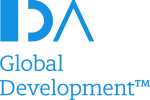All-day seminar: Aid for Private Sector Development in Africa: What works and what can be achieved?
Date: 2. December 2014, 9:00 – 17:00
Venue: Danish Institute for International Studies (DIIS), Copenhagen.
In collaboration with DIIS and the Danish Ministry of Foreign Affairs.
Development assistance is increasingly used to promote private sector development in recipient countries. Furthermore, donor countries increasingly look for synergies between aid and their businesses at home. Most recently, the Danish government’s new strategy for export promotion and economic diplomacy, More trade. New jobs, seeks to combine development goals with support to export and to the internationalization of Danish companies. However, these shifts in priorities have caused controversy. But, often debates have been based on preconceived ideas than on knowledge about what works and what does not. Evaluation experience is rarely shared systematically among actors within the field.
The seminar will focus on the impact of development assistance for private sector development in Africa. Despite more than a decade of economic growth, progress on job creation and poverty alleviation have been limited in most Sub-Saharan African countries. Although extreme income poverty has declined, the absolute number of poor is higher today than in 1990. Unemployment – especially among the youth – is high. By 2020 more than a third of the working-age population in sub-Saharan Africa will be below the age of 25. The private sector is central to dealing with these problems. The seminar will look at the impact of aid for private sector development based on evaluations in order to address the following questions:
- To what extent can support to private sector development create jobs, promote economic transformation and reduce poverty?
- What role do donors and recipient states play?
- In short, what works and what can be achieved?
| 9.00-9.15
|
|
| 9.15-9.35 | 2. Overview, Aid for private sector development
|
|
9.35-9.45
|
Q&A |
| 9.45-10.05
|
– Mushtaq Khan (SOAS, London), based on the book chapter Governance and Growth. History, Ideology, and Methods of Proof http://eprints.soas.ac.uk/17299/1/Governance%20and%20Growth%20History%20Ideology%20and%20Methods%20of%20Proof.pdf in A. Noman, K. Botchwey, H. Stein and J. E. Stiglitz (2012)
|
|
10.05-10.15
|
Q&A |
| 10.15-11.00 | Panel: Questions and Debate with Tony Addison and Mushtaq Khan
|
|
11.00-11.20
|
Coffee |
| 11.20-11.40 | 4. Aid for Agriculture and Agribusiness
Flora Nankhuni (Independent consultant), based on the IFC/World Bank Meta-Evaluation of Private Sector Interventions in Agribusiness. Finding out What Worked in Access to Finance and Farmer/Business Training http://54.206.24.51/sites/default/files/cdi_agribusiness_meta_evaluation.pdf (2013).
|
|
11.40-11.50
|
Q&A |
| 11.50-12.10 | 5. Aid for Financial Services
|
| 12.10-12.20
|
Q&A |
|
12.20-13.05
|
Lunch |
| 13.05-13.50 | Panel: Questions and Debate with Flora Nankhuni and Sunil Sinha |
|
13.50-14.10 |
– Werner Raza (Director of the Austrian Foundation for Development Research, ÖFSE), based on Export Promotion or Development Policy? A Comparative Analysis of Soft Loan Policies in Austria, Denmark, Germany and the Netherlands http://www.oefse.at/Downloads/publikationen/editionen/Edition19_web.pdf (2014).
|
| 14.10-14.20
|
Q&A |
| 14.20-14.40 | Aid Through Business-to-Business Programmes
Per Kirkemann (Consultant, Partner in Nordic Consulting Group (NCG)/ Board Member IDA Global Development), based on Evaluation of Danida Business-to-Business Programme 2006-2011 http://um.dk/da/danida/resultater/eval/igang/b2b/?http%3A%2F%2Fedit.um.dk%2Fda%2Fdanida%2Fresultater%2Feval%2Figang%2Fb2b%2F (2014).
|
|
14.40-14.50
|
Q&A |
|
14.50-15.10
|
Coffee |
|
15.10-15.55
|
Panel: Questions and Debate with Werner Raza and Per Kirkemann. |
|
15.55-17.00
|
DRAFT Panel per 5 November:
|
